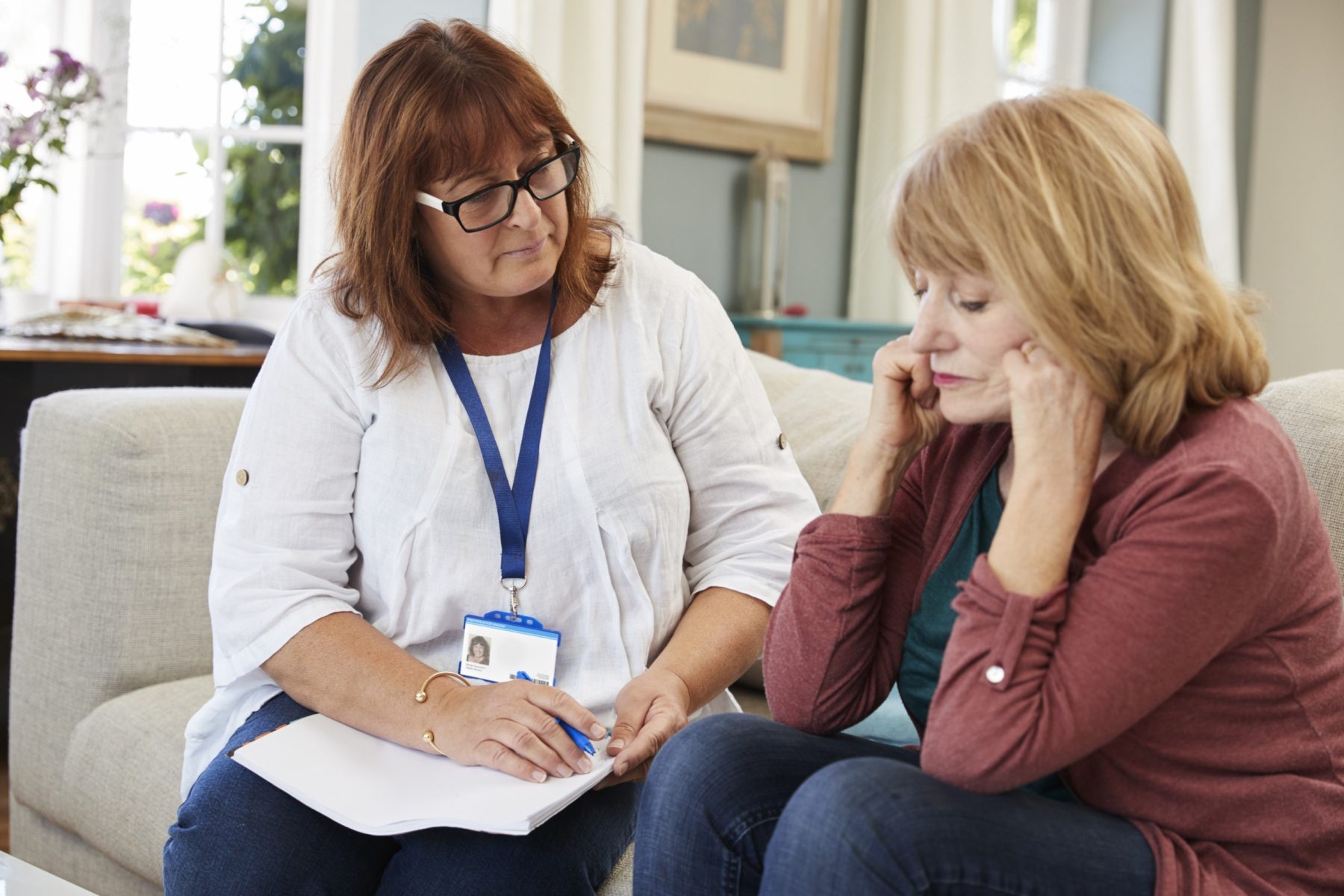According the the National Institute of Mental Health, an estimated 7.1 percent of the United States population had at least one major depressive episode in 2019. Anxiety disorders affect approximately 18.1 percent of the U.S. population. And when it comes to seniors, those numbers climb even higher. What’s more, depression can lead to increased mortality and disability, higher use of health care, and longer hospital stays, resulting in higher health care costs overall.
Chances are, if you or a loved one suffer from depression and/ or anxiety, you’d want to do everything possible to reduce suffering. That’s why it’s important to consider the role of loneliness and current world events, encourage open communication, and seek help as appropriate.
One of the solutions that many are turning to is that of in-home senior care. If you’re limited in the care you can provide or unable to care for your aging loved one, consider hiring a home health care agency to provide vital medical, housekeeping, and companionship services, among many others. These are certainly no substitute for professional medical and mental health care, but these services can help. Here’s how.
Nutrition
Quality, nutritious meals are one of the most important factors in maintaining both mental and physical health. If your loved one struggles to get to the grocery store, prepare meals, or even forgets to eat, his or her mental health may be compromised. In fact, being undernourished can actually increase depressive symptoms.
This is why help with meal planning, preparation, and cooking are vital to keeping your loved one safe and healthy at home.
If your loved one has special dietary needs, whether related to a medical condition or personal preference, home health care can provide the expertise and assistance necessary to help meet those needs and keep your loved one as well-fed and healthy as possible.
Memory
Memory issues, whether caused by dementia or Alzheimer’s disease, can lead to feelings of helplessness and hopelessness in both seniors and their loved ones. It can be frustrating and heartbreaking to watch a once vital, independent person succumb to aging. But help is available. Whatever your loved one’s needs, services such as companionship, help with errands, and light housekeeping can help him or her remain independent at home, delivering a boost to both mind and spirit.
Mobility
Difficulty with mobility is another area that can affect mental health. If your loved one is unable to do the things that he or she used to do easily, this can be not only frustrating, but lead to feelings of hopelessness and even worthlessness. Your loved one may feel that he or she has become a burden. While this is not true, one of the more common symptoms of depression are negative thoughts, which can be made worse if your loved one is alone for long stretches of time. While not a cure or substitute for medical or psychiatric help, having a caregiver provide needed assistance can help lessen some of the effects of loneliness, frustration, and loss of independence.
Healthcare
If you or your loved one suffers from depression or anxiety, he or she may be prescribed medication to help with the symptoms of that disorder. It’s common for people to begin taking an antidepressant or anti-anxiety medication, feel better, and then decide that they do not need the medication any longer. Unfortunately, this is usually not the case. It’s best to rely on medical advice and allow professionals to manage medications, particularly if your loved one has memory issues or is not always compliant with taking medication. A nurse case manager or caregiver can help ensure that your loved one is getting the medication he or she needs at the appropriate times and doses.
In addition, transportation to mental health appointments is vital. If your loved one is unable to drive or take public transportation, which has become even more challenging due to COVID, help may be needed.
Companionship
And finally, one of the most vital ways that your loved one’s mental health can receive a boost is through companionship. He or she may be missing time with family and friends who may have passed away, moved, or are simply unable to devote the time they once did to the relationship. Whatever the reason or circumstance, it’s important to remember that loneliness can have a profound effect on mental health.
A trusted caregiver or home health care agency can help provide peace of mind for you and your loved one – and assurance that your loved one is never alone, and that he or she has someone to voice concerns, frustrations, hopes, and fears to. A listening ear is not a substitute for professional mental health care, but it can definitely help.
Depression and anxiety are common, and they are no less debilitating than a medical illness or disorder. If you or your loved one suffers from one of these disorders, you are not alone. Check with your primary doctor or other health care professional, or visit one of these organizations for more assistance and information.
